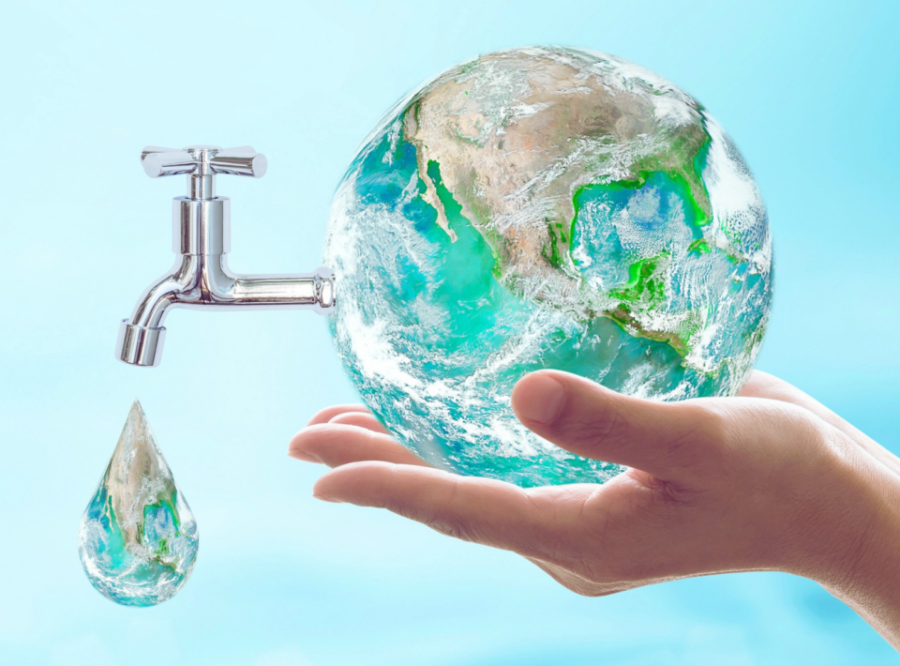Household owners need to keep their homes safe. If you are going to turn off the water, it’s essential to consider how it can affect devices.
We’ve gathered some useful information to help you to prevent appliance damage while shutting off the water, including how it may affect the water heater and air conditioner.

Contents
- 1 What might happen if you turn off the water?
- 2 Consequences of leaving the water supply on while being away
- 3 Choosing the appropriate period to turn the heater off
- 4 Why the air conditioner isn’t affected by turning off the water?
- 5 Precautions to ensure the safety of the house while being far
- 6 Step-by-step guide on how to turn off the house’s water
- 7 Importance of restoring water flow after shutting it off
- 8 FAQ
- 9 Conclusion
What might happen if you turn off the water?
Were you aware that shutting off the water supply in your house won’t influence the air conditioning system, but it could cause potential damage to your heater?
This is because many air conditioners don’t require water and aren’t connected to drain pipes, hence, shutting off the water shouldn’t have a profound impact.
However, it’s crucial to consider shutting off the water heaters and water supply simultaneously if you’re planning to be away from your home for an extended period.
This action can save you from water leaks and any troubles because water-based heating is an effective way of warming the home.
Nevertheless, don’t forget that other water-based devices may get impacted by the shut-off of water.
So often inspect and switch off those devices, including the water heater. Otherwise, it might be late to preclude unfortunate events.

Consequences of leaving the water supply on while being away
If you are leaving your household for an extended period, don’t neglect to shut off the water as it can ruin your house.
Financial and material harm
Forgetting to turn off the water can cause a range of appliance damage, including damage to the wall, heater drips, supply line leaks, and frozen pipes.
The financial cost of repairing all the appliances might be high along with cleaning, drying, and replacing affected items.
To avoid the risk of water damage, it’s wise conclusion to turn off the water when leaving your household for an extended time, particularly during unforeseeable weather conditions.

Emotional damage
In addition, noticing family treasures and items soaking in water can cause emotional stress and trauma that no one wants to go through. Thus, remember to shut off the water before departing for the next break!
So, there are several reasons to maintain the supply of water shut while being out.
Choosing the appropriate period to turn the heater off
Some exceptions
There are some exceptions to the cases as shutting off the water supply line doesn’t always require turning off your heater.
If you possess a smart thermostat and the main heating system is set to low, there’s no need to concern yourself with stopping the heater from running.
So it might be necessary to purchase a smart thermostat to save the house from damage.

Considering the most suitable moment to shut the water off
Nevertheless, it is wise to hope for the finest and expect the worst at some point.
Therefore, in case you left the water heater running after turning off the water, you ought to be prepared.
The water heaters have a water storage tank and store the water as long as there’s no need for it. But if the water level lowers for some cause, it’s necessary to turn the heater off.
In case you possess a hybrid water heater or a tank, the most appropriate moment to shut off the water is before it will be turned off for a long period.
But if you’re experiencing only a short water shut-off, it’s secure to leave your water heater running.

Why the air conditioner isn’t affected by turning off the water?
Comprehending the mechanisms behind air conditioning is a fascinating area of knowledge. Have you ever wondered how an air conditioner processes and whether it can operate without the presence of water?
Additionally, did you ever consider the intricate process by which the air conditioner cools the air?
Can I run AC without water?
It is worth noting that AC units typically don’t require water to perform, that’s why they remain unaffected even if the main water line is closed.
Rather, the air conditioner relies on the process of condensation, which causes water droplets to develop as a consequence of the freezing temperature.
To achieve this, AC units employ several processes such as evaporation, compression, air filtration, air release, and condensation, all of which work in combination to regulate the circulation of air.
Precautions to ensure the safety of the house while being far
When you are far from the household, it’s crucial to take some precautions to ensure your property and family treasures remain in a good condition.
Having a reliable acquaintance or a family member in your vicinity who can check on your home while you’re away can be helpful when it comes to precluding potential damage caused by water leaks.
To prevent freezing and possible breakage of pipes during the freezing temperature of the winter, make sure to empty water from the pipes. Thus, always be cautious during winter months as it might result in frozen pipes.
It’s also wise to check the supply lines and repair damaged ones or replace them with new lines.
You should also pay attention to the drainage system to ensure everything is operating appropriately. Additionally, clear any leaves or debris that may have accumulated in the drains.
By taking these steps, you can rest assured and enjoy the vacation without any worries.
Step-by-step guide on how to turn off the house’s water
There might come a period when you ought to shut off the supply of water. Perhaps you’re preparing to go on an extended journey or have a planned plumbing repair.
Alternatively, there might be unexpected situations in which you ought to act quickly to turn off the flow.
Regardless of the reason, it’s essential to know the steps involved in this process to ensure correctness.
The first step is to locate the main water shut-off valve
Depending on the age or layout of your residence, the valve could be found in various areas, and it’s important to know where to look.
The valve itself could be either a gate valve, which reminds of the circular spigot or a ball valve, which has a lever-shaped handle.
Here are some useful tips to help you find the valve:
In case the valve is situated inside the house, check the utility areas, laundry room, and basement. It can be on the lower part of the main floor. So, don’t forget to look through the main floor.
In warmer weather conditions, the valve can be on an exterior wall. So, begin by searching the outer wall of the household.
Check outside for the valve if there’s a possibility of it being suppressed around the route.
Commonly, near the water meter outside, there are gates or ball valves that you can use to shut off the water. It also can be near the highway, below the panel of access which is concealed in the ground.
The second step is to shut off the water
After locating the main water valve, rotate it clockwise until it can no longer turn. This valve is typically a gate valve, and you might have to utilize a wrench to revolve it if it’s difficult.
Alternatively, if yours possesses a ball valve, you can stop the water by turning the lever in a clockwise direction. Ball valves are easier to operate and don’t require particular instruments.
The valve is either a gate valve or a ball valve, make sure it’s fully closed before proceeding with plumbing.
The third step is to release water pressure by running the taps
Drain the water flowing in your pipes to stop any damage caused by high water pressure in them. Make sure it has no harmful impact on a drainage system.
Start by turning on the tap located at the lowest level of your house, allowing water from the upper floors to flow down.
After, open both the cold and hot water taps and keep them running until the taps drain fully.
This step will ensure that your pipes are free from excess pressure.
The fourth step is to restore the water flow
After completing the repairs, it’s time to turn the water back on. Begin by rotating the valve in a clockwise direction.
Once the valve is fully open, turn on the faucet and anticipate the water flow to reach it.
Professionals recommend letting faucets run at a trickle instead of a drip.
Importance of restoring water flow after shutting it off
While shutting off the water, it’s essential to remember to turn it back on once procedures are finished. Running the water can assist with removing any old water in the pipes and service line which may contain high amounts of harmful metals such as lead.
By restoring water flow, you can ensure that water is free from metals like lead.
FAQ
Is AC connected to plumbing?
Air conditioners aren’t connected to it, because they use techniques to transfer heat, while plumbing is responsible for delivering old water from the service line.
Thus, the air conditioner has no connection with it.
Does water affect HVAC?
Water affects the HVAC in many ways. Water droplets, supply line leaks, and water with mineral content can build up near its components and reduce its efficiency.
Conclusion
So the answer to the question “does shutting off water affect AC” is negative, but it can impact any type of heater such as a hybrid water heater or gas water heater. Instead, AC uses procedures like air release and air filtration to control the conditioning of the household.
Therefore, in case you must shut off the water, search for the valves in the laundry room and utility areas.
Read also: How long should a heat pump run per day: a pressing issue for many of us


